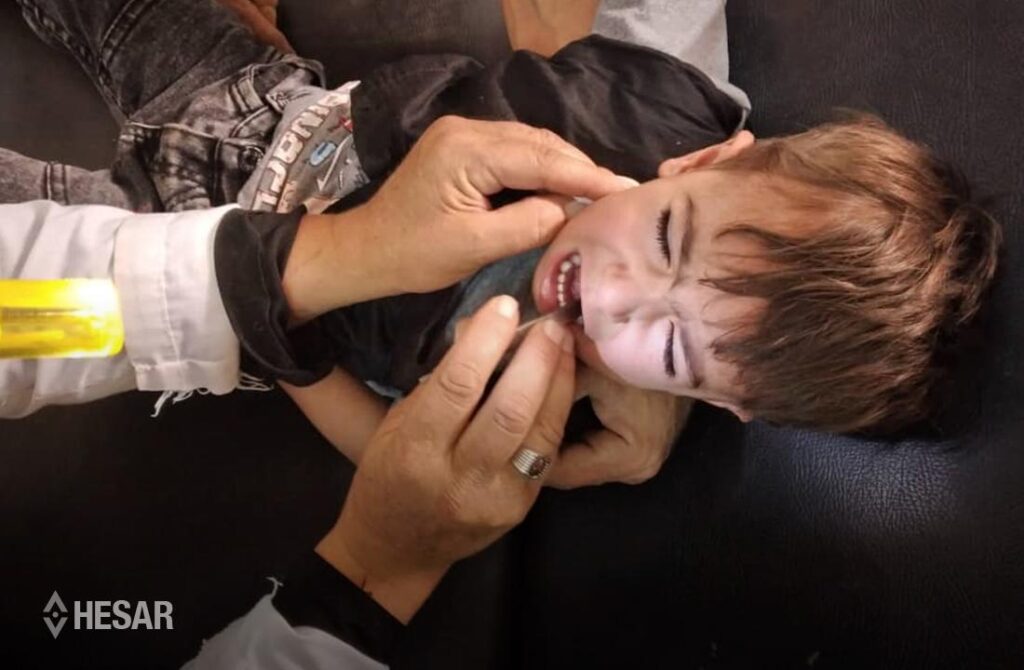
Amidst a dire humanitarian crisis in the besieged Rukban camp, a concerning rise in jaundice cases among children has sparked urgent calls for medical assistance. Jaundice, known locally as “Abu Safar” or “Father Yellow,” has spread rapidly within the camp due to a combination of factors including the scarcity of medical supplies, unsanitary conditions, and the ongoing siege by regime forces and Iranian militias.
Media reports from the Rukban camp, located near the Jordan-Syria border, indicate a distressing surge in jaundice cases among children. The unavailability and exorbitant prices of essential medicines have forced residents to resort to herbal remedies, exacerbating the spread of the disease.
Jaundice, characterized by the yellowing of the skin and eyes due to excess bilirubin, is symptomatic of various underlying health conditions, including hepatitis and liver disorders. In Rukban camp, the lack of access to clean water and sanitation facilities has contributed to the rapid transmission of the disease among children.
Situated near the Jordanian-Iraqi border within the 55-kilometer deconfliction zone surrounding the US military base at al-Tanf, the camp has been under siege by the Assad regime, supported by Russian and Iranian forces. They have prevented the camp’s inhabitants from safely leaving and have blocked any aid from reaching the thousands of refugees for a prolonged period of eight years.
The dire situation in the Rukban camp bears striking similarities to the ongoing humanitarian crisis in Gaza, particularly in Rafah, where aid is also prevented from reaching those in desperate need. In both cases, civilians suffer due to political conflicts and blockades imposed by external forces.
In Rukban, residents have staged protests against the siege, demanding improved living conditions and access to essential medical supplies. The local council has condemned the international community’s silence on the plight of the camp’s inhabitants, urging immediate intervention to alleviate their suffering.
According to Dirbas al-Khalidi, head of the local council, the number of children affected by jaundice in Rukban camp is estimated to be over 200 out of a total of 2,500 children. However, exact numbers are difficult to ascertain due to the camp’s lack of laboratory analysis and medical infrastructure.
The spread of jaundice is exacerbated by the deteriorating living conditions in Rukban, where sewage problems and lack of hygiene contribute to the transmission of infections. The closure of main roads and restrictions on the entry of food and medicine by regime forces have further compounded the crisis, leaving residents with limited options for medical treatment.
Activists and humanitarian organizations have called on the international community to intervene and lift the siege on the Rukban camp, allowing for the urgent delivery of medical and humanitarian aid. The prolonged blockade not only threatens the lives of those trapped in the camp but also undermines fundamental humanitarian principles.









